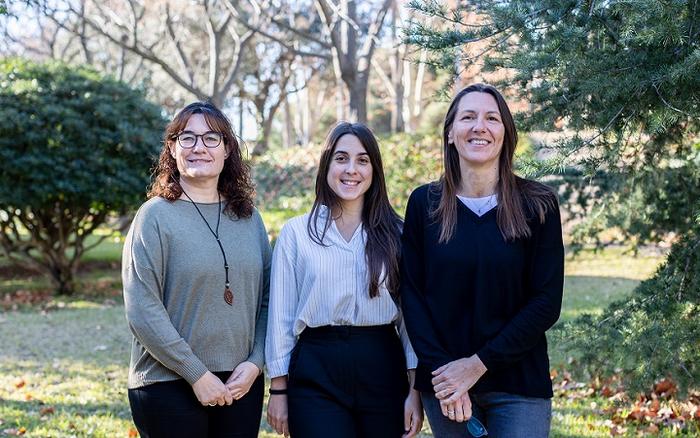Food fraud is a significant and pervasive issue that undermines consumer trust and poses health risks. This deceptive practice, where products are misrepresented or diluted, can lead to serious consequences for consumers who expect authenticity and quality in their food choices. In response, a groundbreaking initiative by researchers at the University of Barcelona aims to combat food fraud by developing robust methods to authenticate the geographical origins of two highly prized food items: virgin olive oil and pine nuts. These products are not only staples in Mediterranean cuisine but are also vulnerable to fraudulent practices that can mislead consumers.
The authenticity of virgin olive oil is particularly important for consumers who are becoming increasingly discerning about the quality and provenance of their culinary ingredients. Understanding where a particular bottle of olive oil originates can significantly influence purchasing decisions and the prices that consumers are willing to pay. As such, it is concerning that the olive oil supply chain remains highly susceptible to fraud. Historical data demonstrates that many consumers unknowingly purchase olive oil that does not match the product’s claimed origin, leading to a market filled with counterfeit goods.
One of the key challenges in combating olive oil fraud lies in the difficulty of verifying claims of origin. Despite stringent European regulations that mandate clear labeling of origin, an official, universally accepted method for verifying this information has yet to be established. This regulatory gap creates a prime opportunity for unethical practices to flourish within the supply chain. To address this pressing issue, researchers have turned to innovative technologies designed to verify the authenticity of virgin olive oil through advanced scientific methods.
The study spearheaded by Professors Stefania Vichi and Alba Tres, which includes contributions from researcher Berta Torres, investigates two promising authentication techniques: stable isotope analysis and sesquiterpene fingerprinting. Each method offers distinct approaches to determine the geographical origin of olive oil, thus extending the arsenal available to combat fraud. Recent findings published in the journal Food Chemistry compare these two methods in detail, an evaluation that is intended to illuminate their reliability and efficiency in authenticating olive oil.
Stable isotope analysis has long been utilized within the field of food science as a tool for geographical authentication. By examining the isotopic composition of the oil, researchers can infer its origin based on variations in environmental factors, such as soil type and climate, which influence the isotopic ratios present in plants. However, stable isotope analysis is not without its limitations, including its potential to yield ambiguous results in certain contexts.
On the other hand, sesquiterpene fingerprinting is an emerging technique that the researchers found to possess significant advantages over stable isotope analysis, especially in terms of classification accuracy, sensitivity, and selectivity. This method analyzes specific volatile compounds unique to olive oil, which can be linked to particular regions, thereby providing a reliable marker for authenticity. The results of the study indicate that sesquiterpene fingerprinting may represent a more effective approach to ensuring the purity and provenance of olive oil.
Furthermore, the research recognized the pressing need to enhance the transferability of sesquiterpene fingerprinting technology for widespread application. Such a move is pivotal to ensure that food safety standards transcend geographical borders and empower consumers globally to make informed decisions about the products they purchase. By facilitating the widespread adoption of this technique, the initiative aims to create a more robust safety net against fraudulent practices in the food industry.
In addition to virgin olive oil, researchers turned their attention to another high-value food item: pine nuts. The second aspect of the research focuses on establishing reliable methods for verifying the geographical and botanical origins of pine nuts. Often regarded as one of the most expensive nuts on the market, pine nuts’ price can be influenced by their species and region of origin. This economic disparity creates fertile ground for fraudulent practices, whereby cheaper products are misrepresented as authentic Mediterranean varieties.
To combat fraud within the pine nut supply chain, the researchers adapted the analytical strategies employed for olive oil authentication. Leveraging the principles of monoterpene and sesquiterpene fingerprinting, combined with solid-phase microextraction and gas chromatography-mass spectrometry, they developed a rapid and highly efficient system for distinguishing authentic pine nuts from counterfeits. This innovative methodology demands minimal sample preparation, showcasing an impressive accuracy rate of 100% for identifying local versus imported pine nuts.
Moreover, the researchers reported a remarkable 99% accuracy in differentiating stone pine (Pinus pinea) from various regions of Spain, highlighting the effectiveness of their approach. This capability to generate precise, quick results represents a transformative step in the ongoing efforts to eliminate fraud and maintain consumer confidence in the food supply chain. As the pine nut industry grapples with issues of authenticity, the implementation of these findings could avert substantial financial losses for producers while safeguarding consumers against deceit.
In conclusion, the University of Barcelona’s comprehensive studies not only address the pressing challenge of food fraud but also equip stakeholders with the tools needed to uphold product integrity. By enhancing the reliability of geographical authentication methods for olive oil and pine nuts, these initiatives lay the groundwork for a more transparent and trustworthy food industry. As consumers become increasingly aware of the origins of their food, the pressure to maintain genuine quality and authenticity is more critical than ever.
Subject of Research: Food Authenticity
Article Title: Ground-breaking comparison of target stable isotope ratios vs. emerging sesquiterpene fingerprinting for authenticating virgin olive oil origin
News Publication Date: 1-Mar-2025
Web References: Food Chemistry – Stable Isotope Analysis, Food Chemistry – Sesquiterpene Fingerprinting
References: Refer to articles in Food Chemistry for further details.
Image Credits: UNIVERSITY OF BARCELONA
Keywords: Food safety, authenticity, virgin olive oil, pine nuts, sesquiterpene fingerprinting, stable isotope analysis, fraud detection
Tags: combating food misrepresentationconsumer trust in food productsfood fraud preventionfood safety innovationsfraudulent food practicesgeographical origin authenticationMediterranean cuisine integrityolive oil supply chain vulnerabilitiespine nuts quality assurancequality control in food productionUniversity of Barcelona research initiativesvirgin olive oil authenticity





